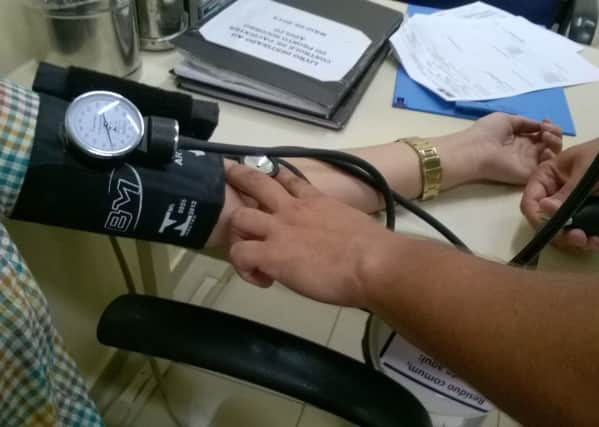GP feedback could reduce '˜high risk' prescribing


Even routine medications can cause complications – the painkiller ibruprofen can cause stomach bleeding if given to people with ulcers.
One in 20 hospital admissions are caused by adverse reactions to prescription drugs and at least half of these are preventable, according to experts from Dundee and Strathclyde universities. The team discovered that regular feedback to GPs helped to reduce so-called “high risk” prescriptions of drugs such as anti-psychotics and anti-inflammatories by more than 10 per cent, after analysing more than 260 Scottish GP practices.
Advertisement
Hide AdAdvertisement
Hide AdClunky IT systems and short appointment slots have made it difficult for GPs to fully analyse a patient’s whole history, said lead author Professor Bruce Guthrie.
Prof Guthrie, a GP and professor at Dundee Medical School, said: “Prescribing is inherently risky and it’s important to recognise that the prescribing we’re targeting is not always wrong because clinicians and patients have to balance benefit and harm in complex ways when people have multiple conditions.
“However, we believe that we can improve patient safety by prompting practices to review patients with particular potentially risky prescribing, to make sure that it is appropriate. We have enough evidence that this works so the NHS really needs to just get on with it now.”
The study, published in the British Medical Journal, compared prescribing across three different groups of GPs.
The first group were given the existing NHS Scotland educational material while the second group were given extra feedback on how their rates of “high-risk” prescribing compared to other practices.
A third group received an additional one-page document aimed at increasing responses to feedback.
There was no evidence in the first group to suggest a significant reduction in high-risk prescribing.
In the second group there was a 12 per cent reduction of high-risk prescribing, and in the third group a 14 per cent reduction.
Advertisement
Hide AdAdvertisement
Hide AdProfessor Marion Bennie, co-author from Strathclyde University, said: “This study has shown how routinely collected national prescribing data can be transformed into intelligence and feedback directly to frontline clinicians to support review of patient care.
“This is a scalable intervention which could be deployed in the NHS and in many other healthcare systems now, where there is a good level of electronic patient records.”
The findings follow an earlier study from Dundee where better prescribing patterns led to significant reductions in A&E admissions.